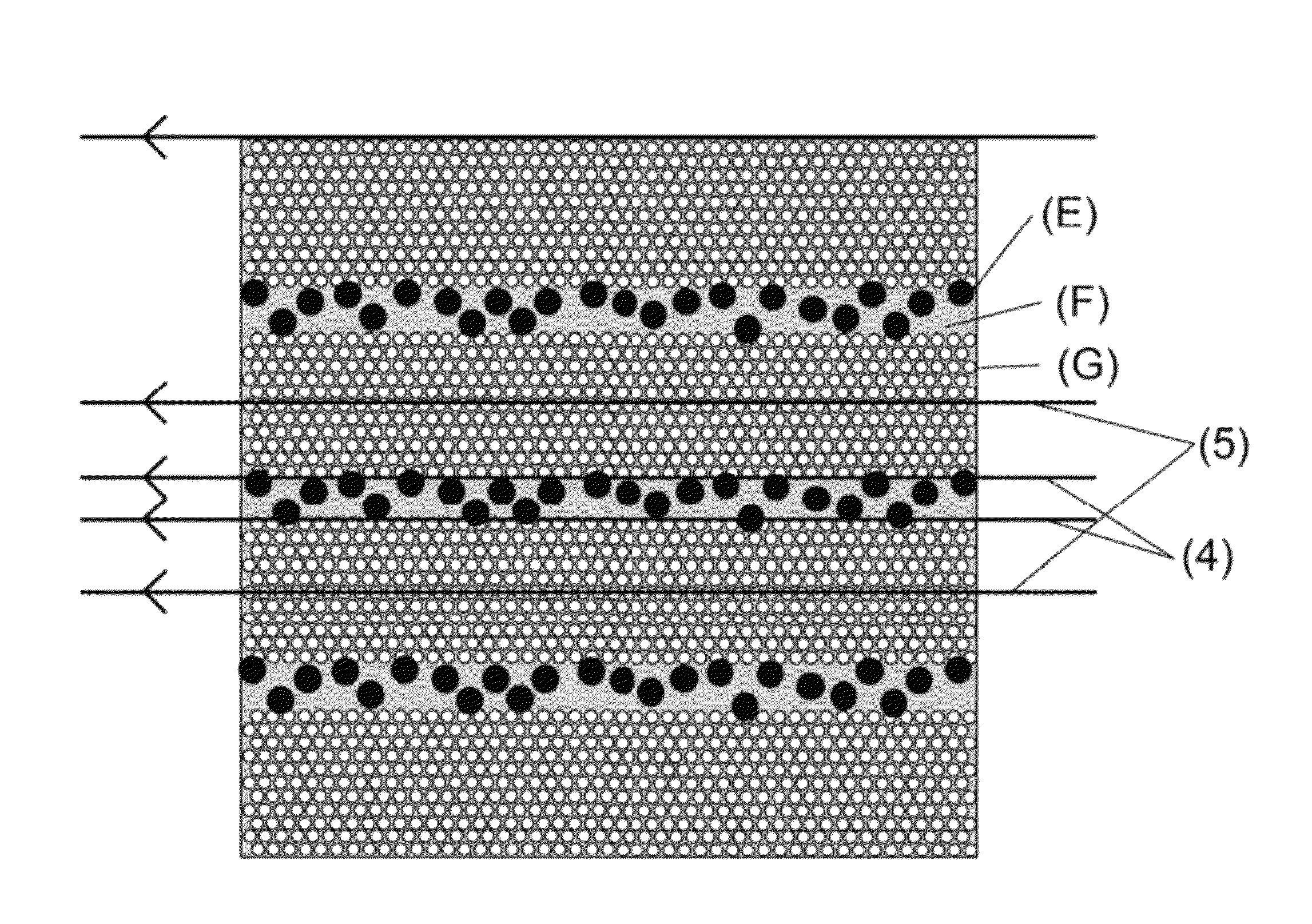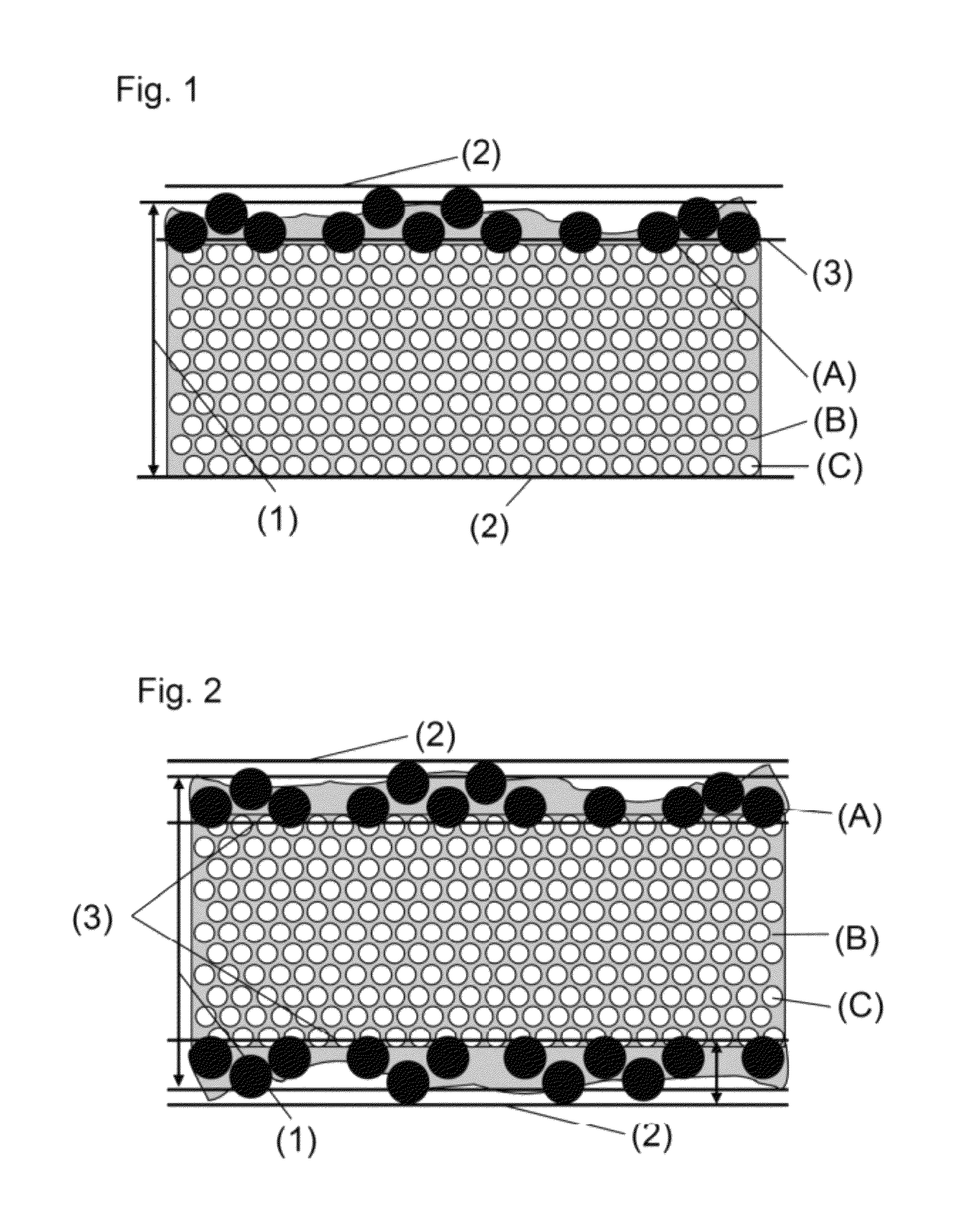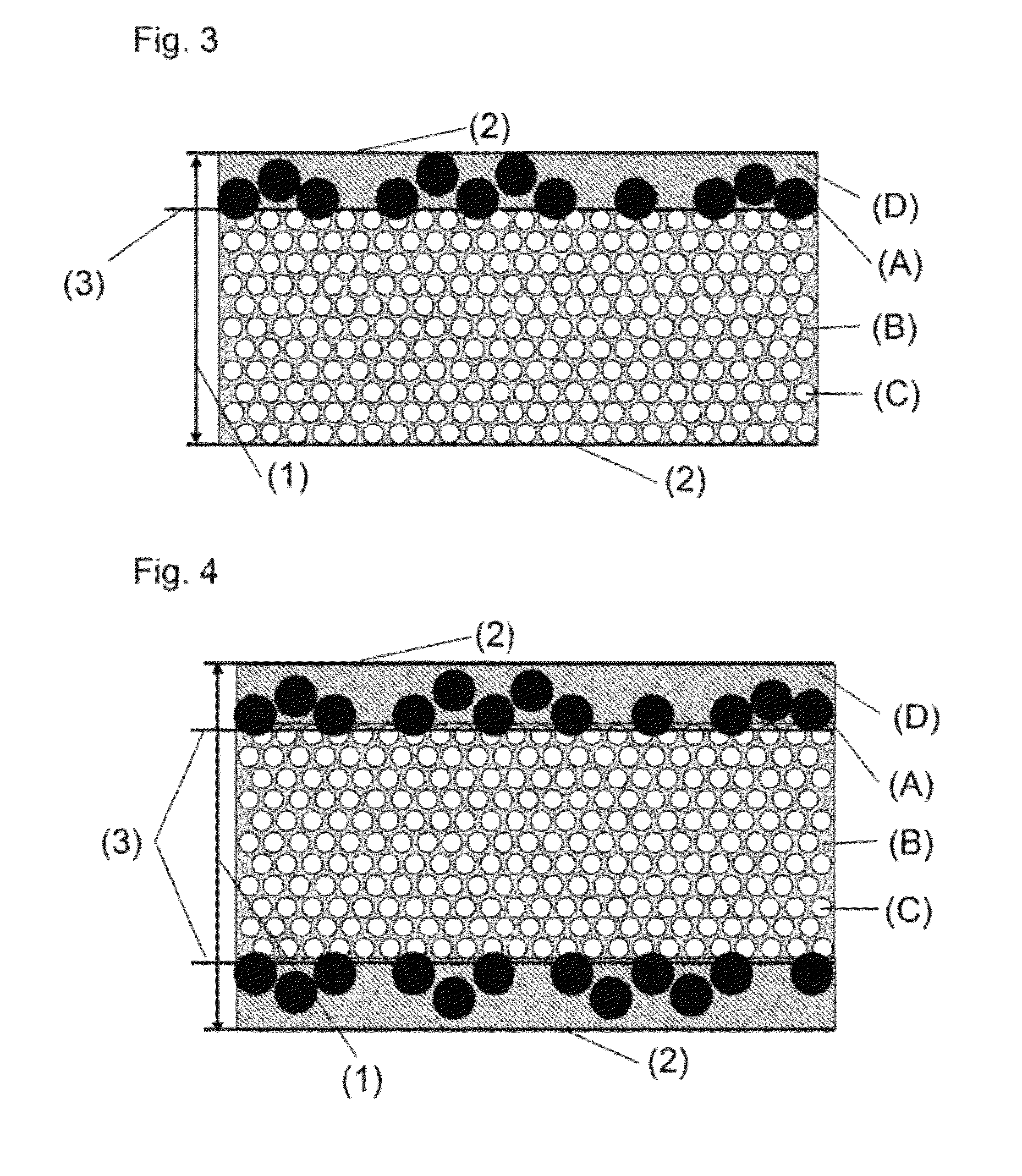Prepreg, fiber-reinforced composite material, and method for producing prepreg
a fiber reinforced composite material and pre-prep technology, applied in the field can solve the problems of increased vibration transmitted to hands, increased rigidity during ball hitting, elbow pain, etc., to improve the vibration damping properties of fiber reinforced composite materials, and improve the effect of rigidity or strength
- Summary
- Abstract
- Description
- Claims
- Application Information
AI Technical Summary
Benefits of technology
Problems solved by technology
Method used
Image
Examples
examples
[0144]The present invention will now be illustrated in greater detail with reference to Examples, but it should be understood that the invention is not construed as being limited thereto.
[0145]Components (A) to (E) used in Examples and Comparative examples are as follows.
[0146](A-1): Three-dimensional cross-linked urethane particles coated with hydrophobic silica (“DAIMICBEAZ [registered trademark]” UCN-5150D manufactured by Dainichiseika Color & Chemicals Mfg. Co., Ltd.: average particle diameter 15 μm; tan δ at 10° C., 0.20; glass transition temperature −27° C.; spherical)
[0147](A-2): Three-dimensional cross-linked urethane particles coated with hydrophobic silica (“DAIMICBEAZ [registered trademark]” UCN-5070D manufactured by Dainichiseika Color & Chemicals Mfg. Co., Ltd.: average particle diameter 7 μm; tan δ at 10° C., 0.20; glass transition temperature −27° C.; spherical)
[0148](A-3): Three-dimensional cross-linked urethane particles (“Art Pearl [registered trademark]” JB-400T m...
reference examples 1 to 9 and 17 to 24
[0203]Epoxy resins shown for Reference Examples 1 to 9 and 17 to 24 in Tables 1 and 2 were heated, melt-kneaded, and then cooled to 60° C., followed by adding a curing agent and curing catalyst to prepare epoxy resin compositions. Each of these resin compositions was defoamed in a vacuum and injected in a mold which was set up so that the thickness would be 2 mm by means of a 2 mm thick Teflon (registered trademark) spacer, followed by curing under the conditions described in each Reference example to prepare a 2 mm thick cured resin. The glass transition temperatures of such cured resins are shown in Table 1 and Table 2. In Reference Examples 1 to 9 and 18 to 24, the glass transition temperature was in a sufficiently high range of not less than 100° C., but it was less than 100° C. in Reference Example 17. Furthermore, DSC analysis showed no exothermic peak for all cured resins prepared in Reference Examples, indicating that the cured resins were in a completely cured state.
reference example 10
[0204]Epoxy resins shown for Reference Examples 10 in Table 1 was melt-kneaded and then cooled to 80° C., followed by adding a curing agent to prepare an epoxy resin composition. A cured resin was produced from this resin composition by the same procedure as in Reference Example 1 except that the curing was performed at 180° C. for 2 hours. The cured resin was acceptable in terms of both glass transition temperature and exothermic peak.
PUM
| Property | Measurement | Unit |
|---|---|---|
| tan δ | aaaaa | aaaaa |
| particle diameter | aaaaa | aaaaa |
| glass transition temperature | aaaaa | aaaaa |
Abstract
Description
Claims
Application Information
 Login to View More
Login to View More - R&D
- Intellectual Property
- Life Sciences
- Materials
- Tech Scout
- Unparalleled Data Quality
- Higher Quality Content
- 60% Fewer Hallucinations
Browse by: Latest US Patents, China's latest patents, Technical Efficacy Thesaurus, Application Domain, Technology Topic, Popular Technical Reports.
© 2025 PatSnap. All rights reserved.Legal|Privacy policy|Modern Slavery Act Transparency Statement|Sitemap|About US| Contact US: help@patsnap.com



